Average sizes and life expectancy for this breed:
The unique and distinctive look of the Lykoi causes different reactions whenever people first see them. Most people concur that they look like little wolf cats – where the name Lykoi is from, a play off the Greek word Lycos which means wolf. They also have a strong prey drive that is evident when they play. This cat will stalk their toys, other pets, and even people before they leap.
Lykois are a very loyal cat breed that tends to bond deeply with their human companions. They are highly intelligent and are awesome problem solvers, which shows when they play. They like to be with their families but can find fulfilment playing alone with any toy or object.
This fun-loving cat breed loves human interaction, as well as other animals such as cats and dogs. When there is more than one Lykoi, these cats interact wonderfully. They sometimes seem like they have dog-like qualities because they will play fetch and chase like a wolf would on a hunt. Lykois love a warm lap but would actively play and hunt with their unlimited supply of energy.
Lykois are medium-sized cats with somewhat slender legs and muscular bodies. They are known for their facial “mask”, which is considered to be their most striking feature. Their coat ranges from nearly coated to nearly hairless, especially during “moulting”, which happens twice a year.
Lykois will always lack an undercoat, regardless of the density of their coat, giving way only to their top guard hairs. However, despite their sparse hairs, Lykois are not considered hypoallergenic as they shed a lot.
Their coat appears coarse, but it is actually very soft and silky. The most usual and striking colour of their coat is black roan – a mingling of black hairs accented with individual white hairs that gives a very intense appearance of the facial “mask” and colour contrast. While Lykois can appear in other colours, black roan is only the accepted colour in The International Cat Association championship status.
Considered a new breed, Lykois continues to fascinate many cat fanciers and lovers worldwide for their unique appearance.
See available kittens.jpg)

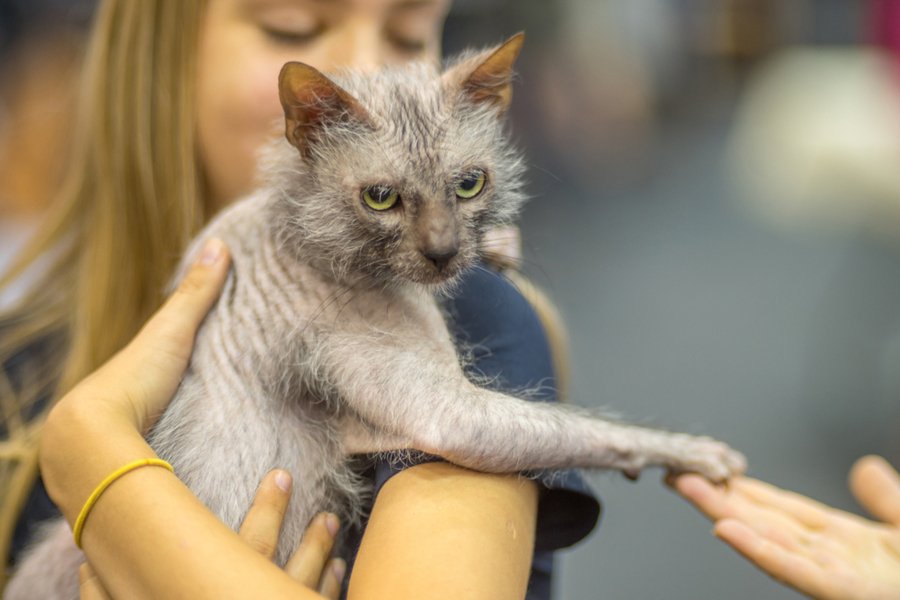


Lykois are a naturally occurring breed from the feral cat population in the USA. In 2011, the breed was founded by Brittney Gobble, Johnny Gobble, and Patti Thomas, just after two irrelative litters of kittens were introduced to the founders as unique cats. The Gobbles did careful health assessments to ensure no sickness or disease caused the cat’s distinctive appearance.
To demonstrate it was from a gene mutation, Johnny Gobble bred two unrelated felines to produce the first purposefully bred Lykoi kittens. Since the mother of this litter was a black domestic cat, comprehensive outcrossing with shorthair black domestic cats started. It was identified that the gene was recessive with time, and to continue to decrease genetic inbreeding, several outcrossing with black domestic cats were done.
Aside from the breeding program, there are still several Lykoi cats born to the feral cat population. Lykois were accepted by The International Cat Association for championship competition in 2017.
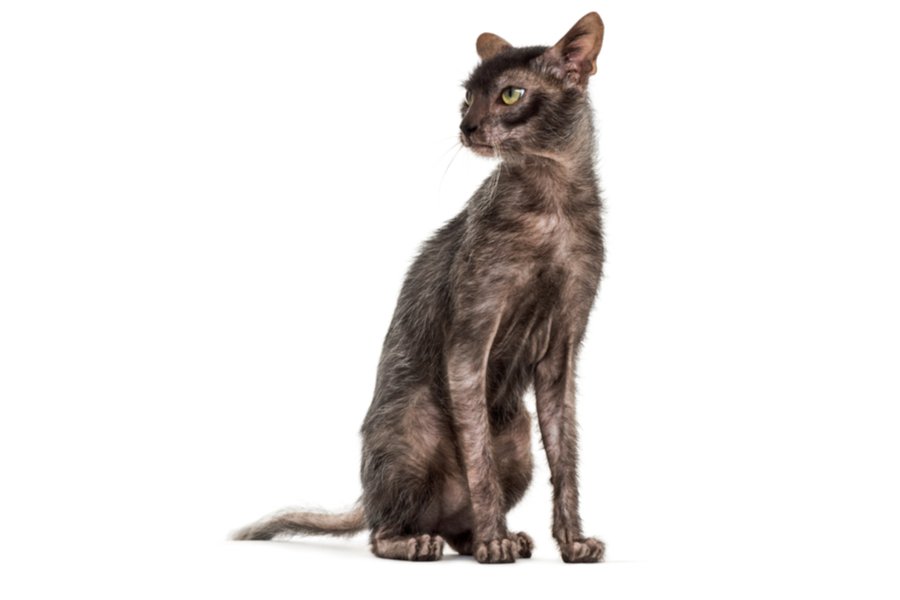
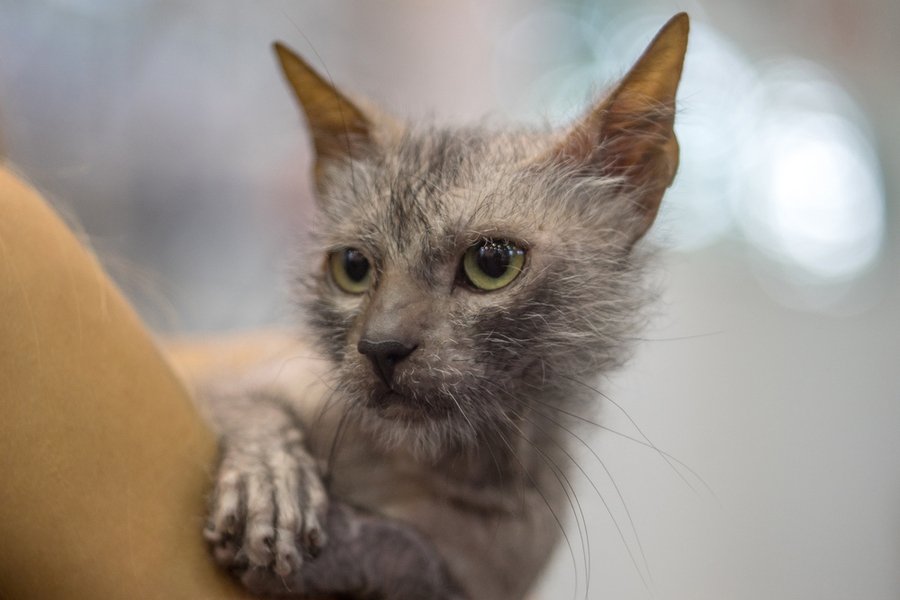
Lykoi is an ancient Greek word that means wolf. Lykois come in many colours, but only solid black roan is permitted to show. When you look a Lykoi straight into their face, they have the look of a mythical werewolf. Lykois have an agile moderate foreign type of build. Their head has a modified wedge shape with rounded contours, large, high-set, vertical ears and beautiful gold oval-shaped eyes.
They are partially hairless but their coat’s appearance changes as they go through shedding cycles. The exceptional pattern of reduced hair and roan pigmentation gives the Lykoi’s their unique look. Some people might consider them unappealing when they first see them, but they will change their minds once they hold or interact with them.
The number of unpigmented white hairs within their coat varies from cat to cat and throughout their lifetime – ranging from 30% to 70%, with around 50% being the ideal. Their hairs appear a little longer compared to a normal shorthaired cat.
Their gene also causes a reduction in their coat volume, so they have a little undercoat. Only sparse down hair is seen in specific areas like around their eyes, muzzle or on their feet, which contributes to their werewolf-like appearance.
When you are living with a Lykoi, you will instantly notice just how intelligent these cats are. They are very curious and great problem solvers, so you’ll need plenty of interactive cat toys, plus a set of play items that are rotated frequently. Keeping your Lykoi mentally stimulated will bring out the best of this breed's personality.
Lykois’ lineage is from feral cats. And because of this, they have retained their strong prey drive. They enjoy stalking cat toys, other pets and people. So, keep this in mind if you are an owner of small pets like birds, rodents or rabbits. If so, you might want to reconsider owning a Lykoi.
This cat, like other breeds, is not fond of changes. Lykois get nervous and cautious when they are in a new situation, preferring to find distance and observe before immersing. But because of their natural loving nature, they quickly warm up to new people and other pets. Lykois are open to strangers but at the same time remain reserved because they prefer the company of their human companion.
As they are so bright, you can train them to play games of fetch. Lykois are generally an all-around active cat. Make sure you have suitable space and scope for them to fulfil their climbing missions if you're considering adopting a Lykoi.
Their behaviour is generally playful, but they have the tendency to wander off on their own for some time. Due to being a high energy feline, while they don’t mind being petted on their chin, they would typically prefer being “busy” doing their own things than just sitting on their human companion’s lap. Still, when they are tired, Lykoi cats love nothing more than to snuggle up with their human companion and enjoy some well-deserved relaxation time.
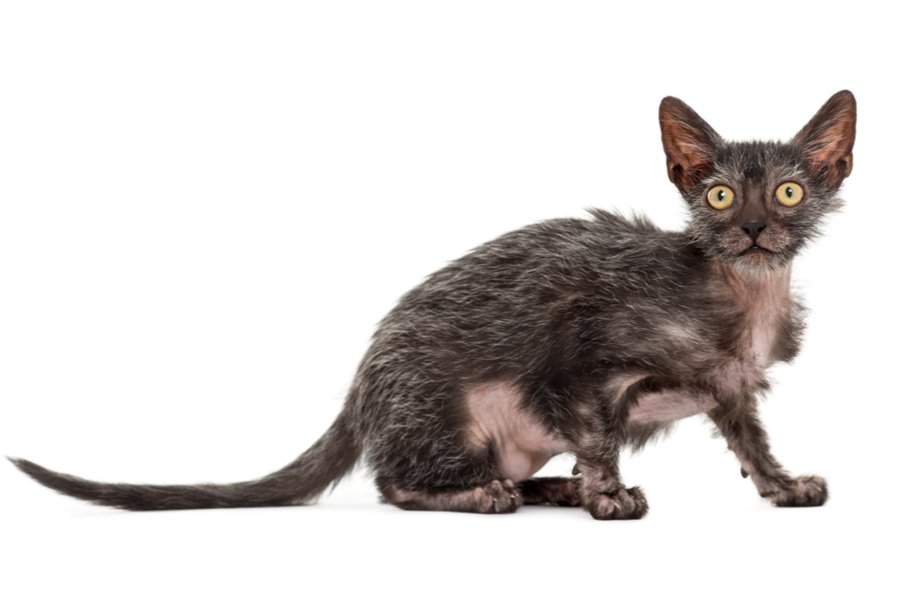
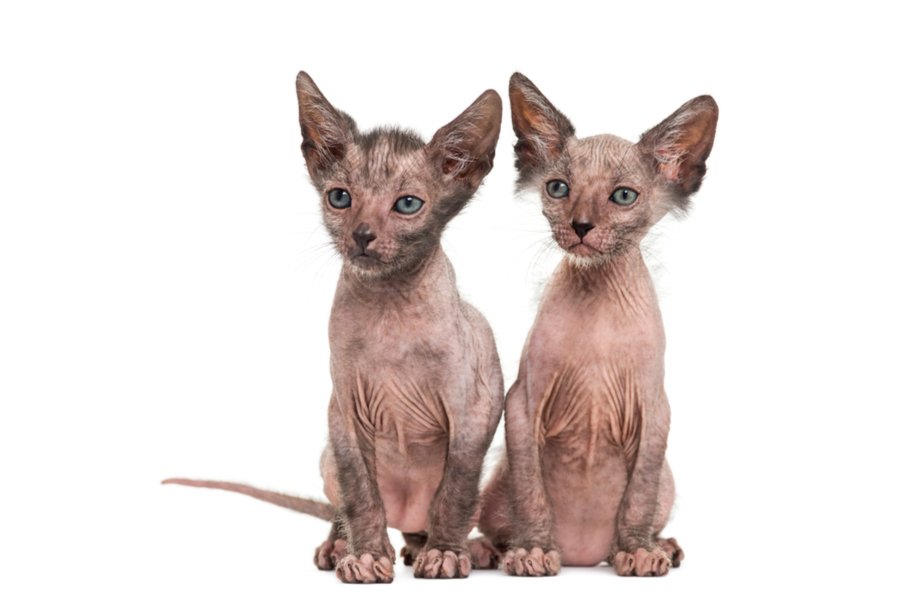
Lykois are known to be an intelligent and active cat breed. They thrive in an environment where they can roam around freely and keep their active and bright minds stimulated at all times. Start them young by training your Lykois to use their scratching post and litter boxes. They can then progress to more complex training such as learning how to play fetch and following commands through clicker-training.
Remember, like many other cat breeds, when a Lykoi is appropriately trained and familiarised during kittenhood, they can quickly adjust to new situations and environments. Moreover,
Lykois will grow up to be a well-bred and well-rounded feline companion.
A Lykoi’s coat is thin and may be nearly fully coated when they are born. However, their coats shed seasonally, so there may be times they may appear near naked. Because they lack a considerable amount of undercoat for weather protection, they should be considered only as an indoor cat. If exposed to outdoor weather conditions, Lykois can suffer sunburn or hypothermia.
Because of their lack of hair, this cat’s skin can get oily. Thus, they must be washed frequently, but their bathing should be simple as they do not have much hair. Some cats will need more frequent bathing to prevent blackheads or other tiny “cystic acne” type issues from the excess oil.
Inspect your Lykoi’s ears and eyes as these can be susceptible to infection. For their ears, keep them clean and healthy by checking them for any debris, dirt or wax buildup. Wipe it out using clean cotton balls with a vet-approved ear cleanser. Never use cotton swabs because they can aggravate or damage your Lykoi’s delicate inner ear structure. If you notice any foul smell coming out of their ears, contact your vet instantly for care and treatment, as this can be a sign of infection.
For infection-free eyes, keep them clean by examining them weekly for dirt, stains and discharge. Use a clean, soft cloth with a vet-approved eye cleaner to eliminate any discharge or stains that may result in infection. Just remember to use another part of the fabric to avoid any risk of eye infection.
For their dental health, brush their teeth weekly to prevent tartar buildup and tooth and gum diseases. You can use a pet toothbrush and toothpaste to clean their teeth and mouth well. To keep their nails clean, trim them twice a month or as needed.
Give extra care to their unique coat by ensuring that their litter boxes are clean at all times as dirt, debris, and clumped litter can stick to their fur, which might be hard to remove. Also, while grooming themselves, they may ingest some of this dirty litter, which can cause irritation and blockage in their digestive system.
Lastly, it is best to keep your LaPerm as an indoor pet. As mentioned, this cat breed is prone to hypothermia or sunburn when exposed to weather conditions outdoors. Moreover, it will keep them safe from any cat diseases or other unfriendly circumstances like accidents and animal attacks.
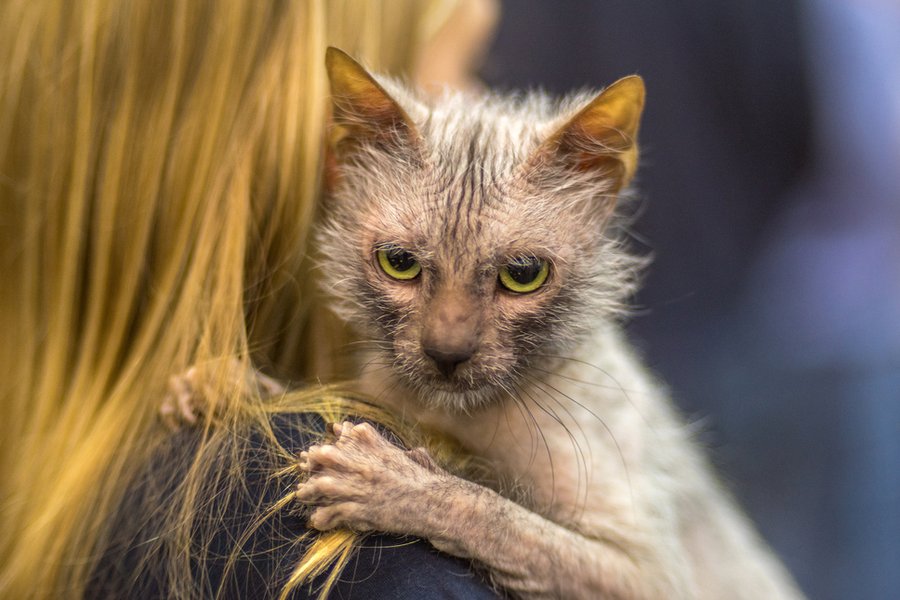
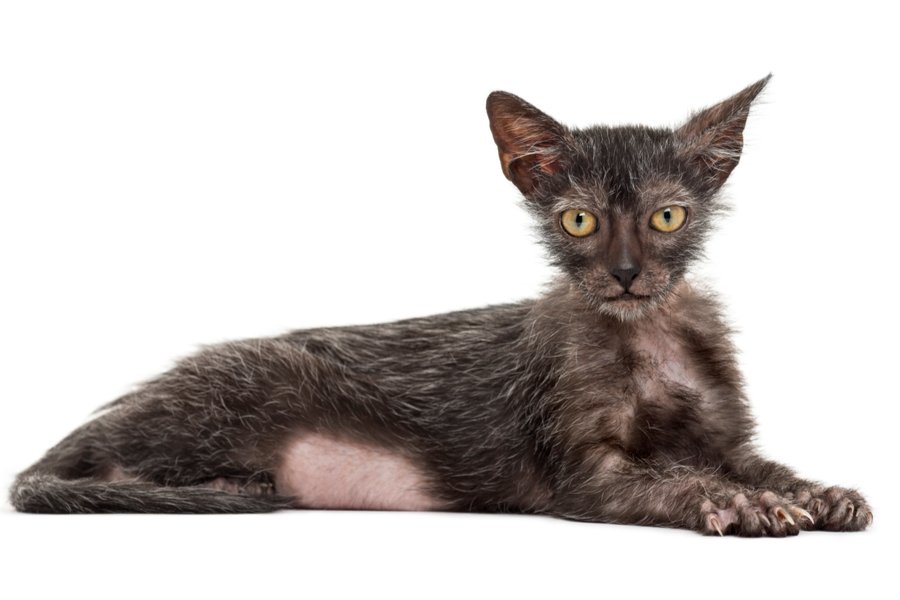
As the Lykoi is a new breed, it is too early to tell if they have any predominant hereditary diseases. However, besides their skin problems from excess oil, they have so far been proven to be a robust, healthy cat breed.
Still, the The International Cat Association (TICA) Lykoi Breed Committee endorses genetic testing for all cats. Thus, we recommend only acquiring a kitten from a registered breeder who follows this protocol and supplies you with the DNA health test results before purchase.
Because of their high energy and intelligence, Lykois are ideal for families with children and other pets. They are affectionate, playful and active, which is an excellent match for children. They can be trained to play a game of fetch. Just remember to oversee every interaction between a child and a Lykoi to prevent any accidents. Also, remember to give your Lykoi their own space and time to make them happy and content.
Lykois can live harmoniously with other pets such as cats and cat-friendly dogs. Still, because of their strong prey drive, be cautious in showing these cats any small pets such as birds, rodents and small rabbits. As recommended, introduce your pets gradually and in controlled environments when meeting for the first time to make sure that they learn to get along well together.
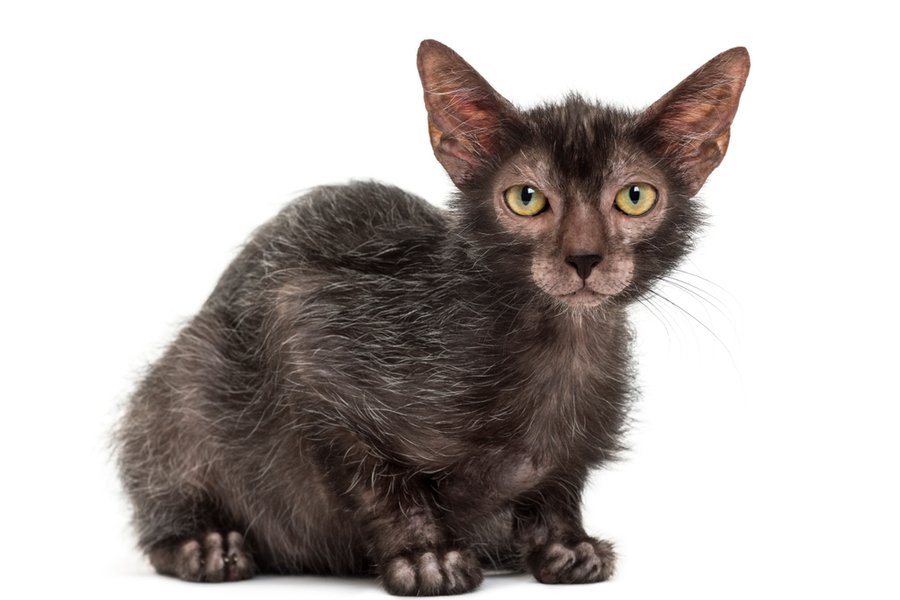
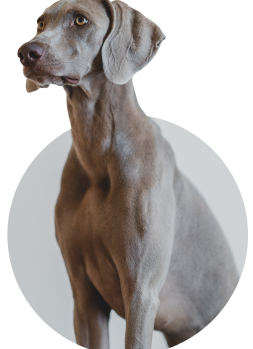
We can connect you with Breeders that are specialized in this particular breed.
See available kittens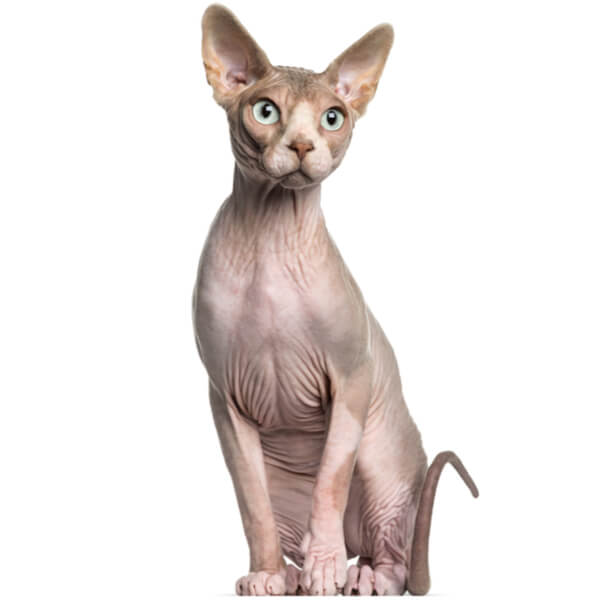
Canada
Size : Medium
Coat : Hairless
Registration : GCCF, TICA, CFA, FIFe
Vocality : High
Hypoallergenic : Yes
Grooming : Once a Week
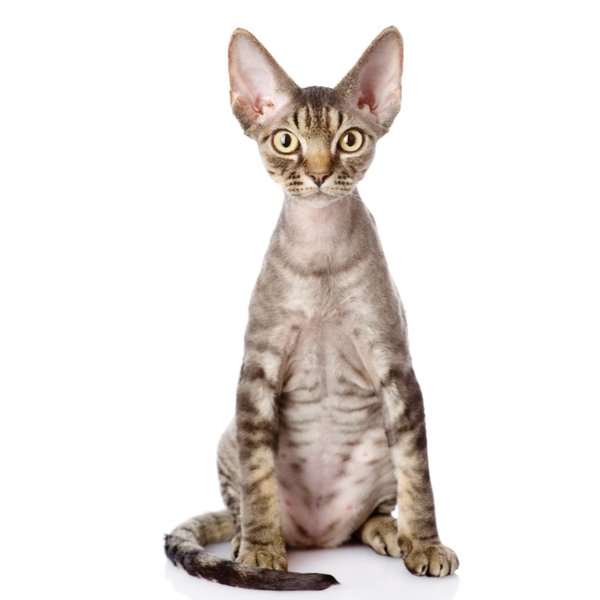
United Kingdom
Size : Small
Coat : Short
Registration : GCCF, TICA, CFA, FIFe
Vocality : Low
Hypoallergenic : Yes
Grooming : Once a Week
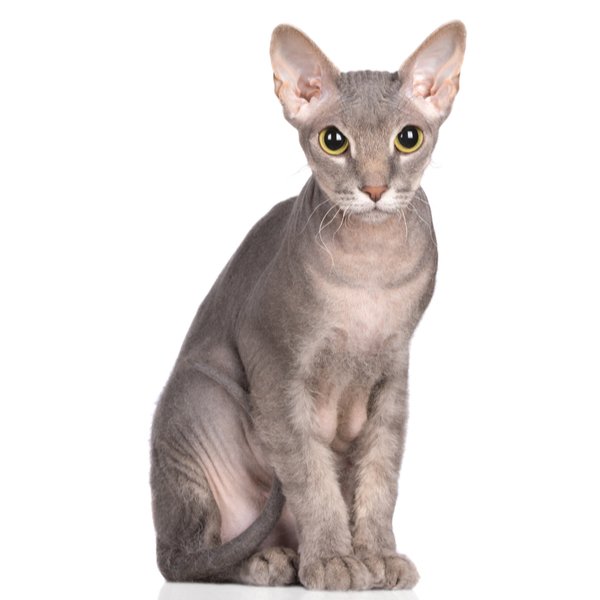
Russia
Size : Medium
Coat : Hairless
Registration : TICA, FIFe
Vocality : Medium
Hypoallergenic : Yes
Grooming : Everyday
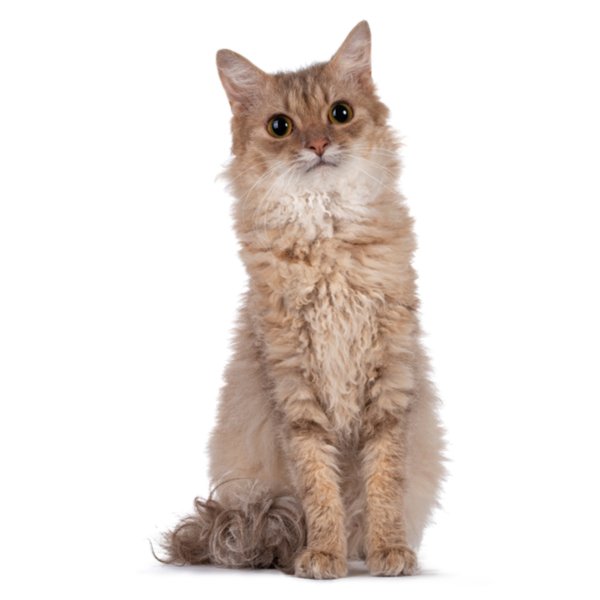
United States of America
Size : Small
Coat : Long
Registration : GCCF, TICA, CFA, FIFe
Vocality : Low
Hypoallergenic : Yes
Grooming : Twice a Week


Need some advice?
Whether you're a first time pet owner, an experienced pet owner, a new or long-time breeder, or just curious about pets, we've got you covered!
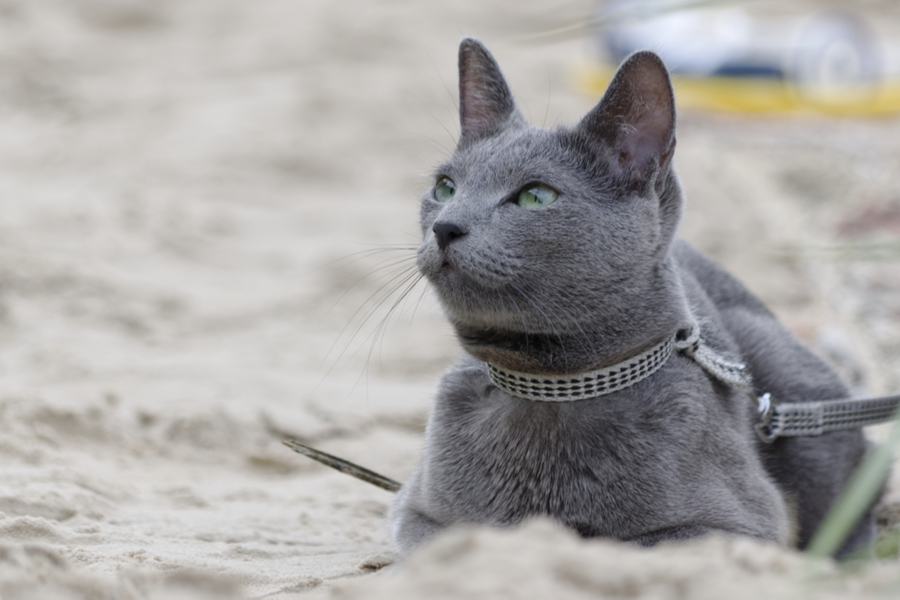
January 17, 2024
What Is The Personality Of Russian Blue Cats?
Russian Blue cats are most known for their distinctive shimmery blue-silver coat and piercing green eyes. However, this breed’s calm and gentle temperament is what makes them shine the most in the feline world.
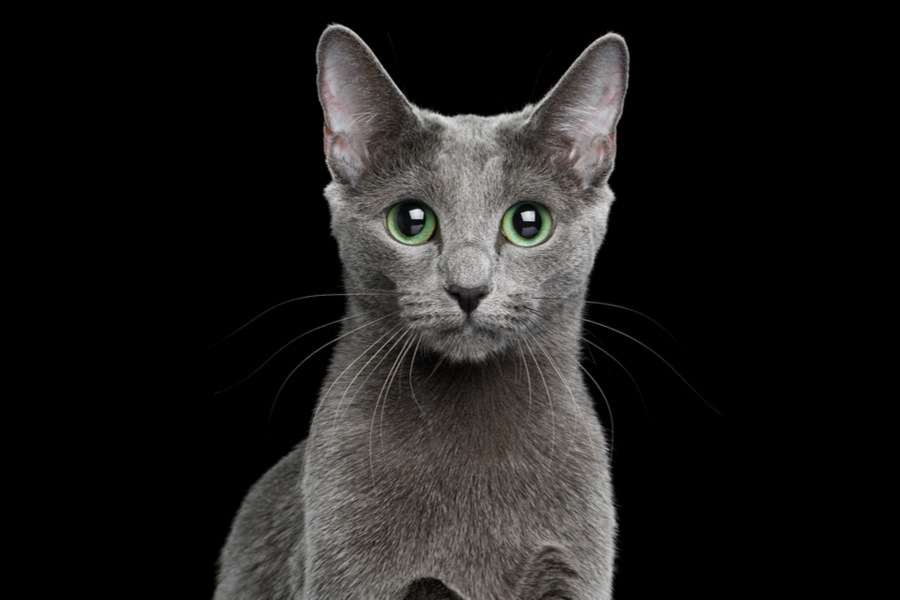
January 17, 2024
10 Facts About Russian Blue Cat Breed
Russian Blues are one of the most aesthetically stunning cat breeds, with a gorgeous plush silvery coat and vibrant green eyes. However, it’s not only their appearance that is beautiful; their nature is too.
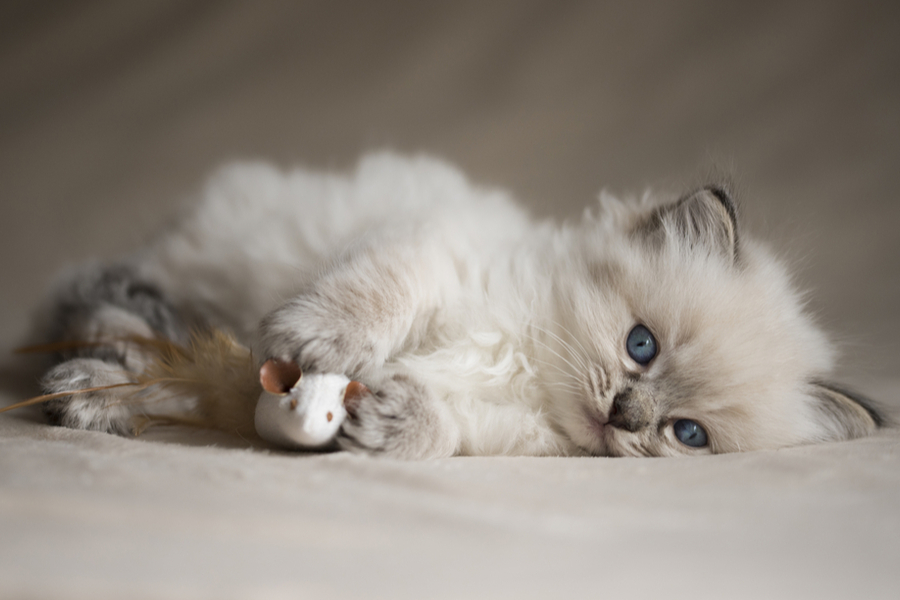
January 17, 2024
How To Choose The Right Cat Breed for You
Cats can make the most fantastic animal companions; they are adorable, friendly, and loving. However, not all felines are created equal. There are many different breeds, of which each has its unique personality traits.
Need some help?
Contact us to speak to our friendly advisor, who will gladly help you find your dream pet!



We are registered in England and Wales under registration number 12568840,
and our registered office is at 58-60 Kensington Church Street, W8 4DB London, England.
© 2023 The Pedigree Paws